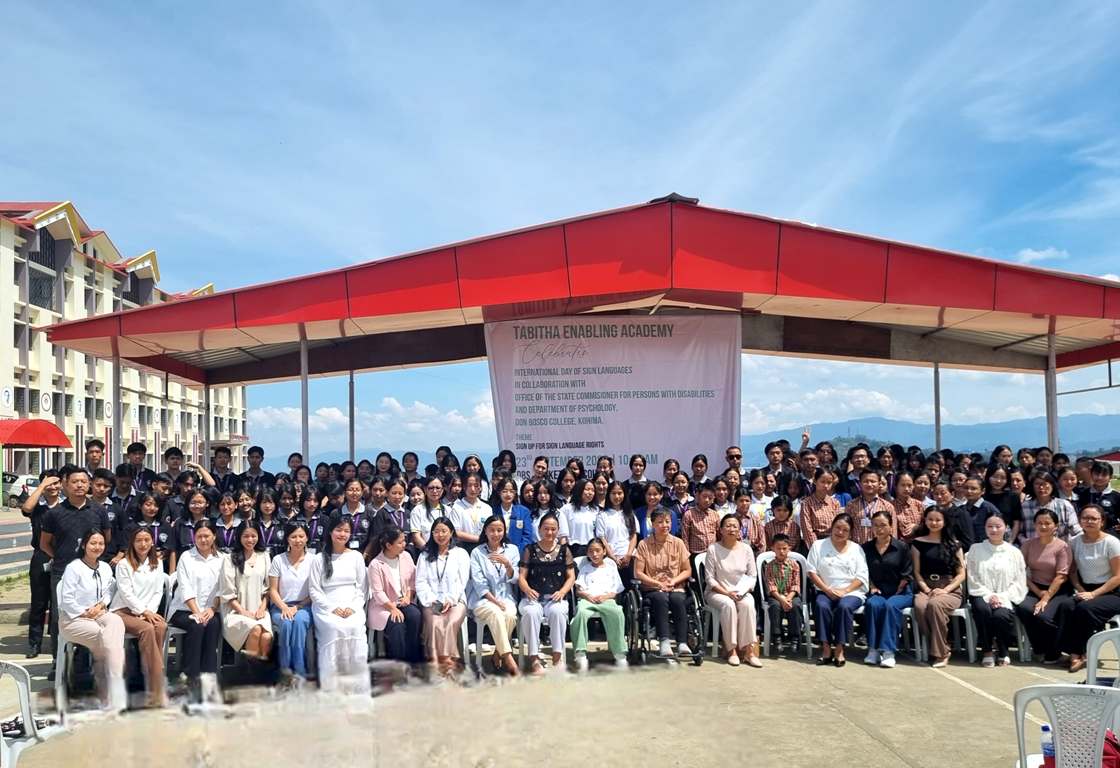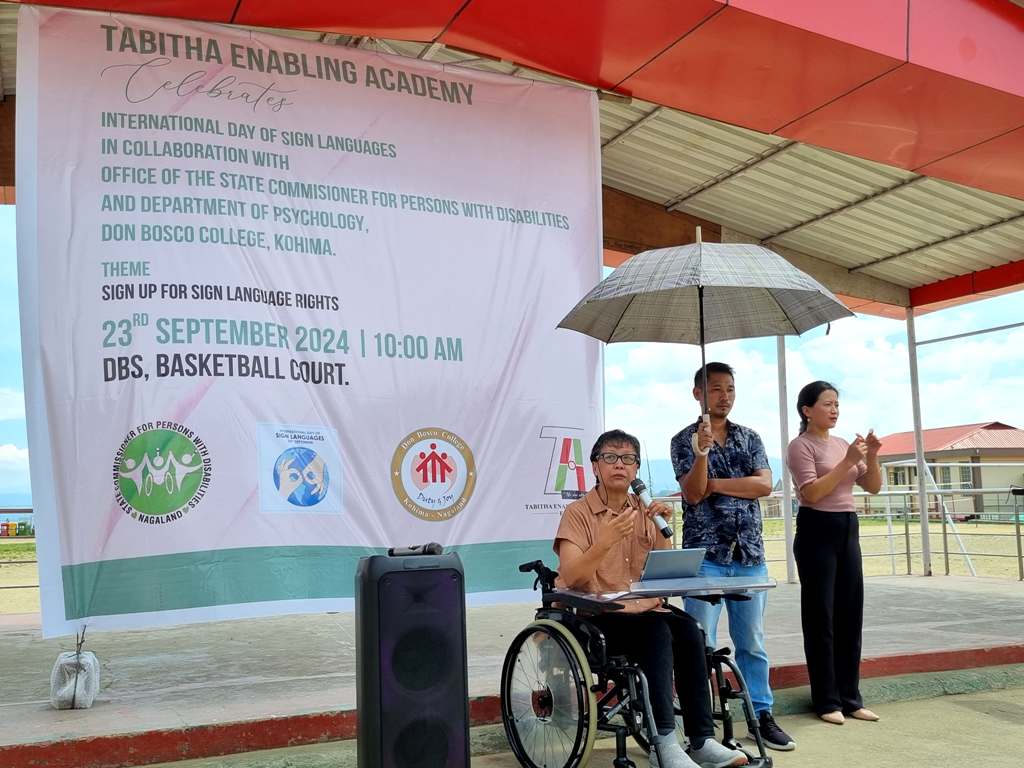Share
Only two certified professionals in entire state

KOHIMA — Despite a growing need for sign language accessibility across various sectors, Nagaland is facing a critical shortage of qualified interpreters.
State Commissioner for Persons with Disabilities, Diethono Nakhro revealed that there are only two trained and certified sign language interpreters serving the entire state.
Speaking at a Don Bosco College event commemorating International Day of Sign Languages in Kohima on Tuesday, Nakhro said that the field of deaf education and sign language interpretation is full of opportunities. While there is a push for inclusive education that allows children with disabilities, including deafness, to access quality education in any school, there is a huge shortage of teachers who are trained to teach children with disabilities, including deaf children, she said.

She went on to say that the need for trained sign language interpreters extends far beyond the education sector, encompassing hospitals, courts, police stations, religious institutions, and various public events. “But where do we find them?” she questioned.
Nagaland currently has only two trained and certified sign language interpreters. While some individuals with proficiency but lacking formal training do offer assistance when needed, the scarcity of qualified professionals remains a pressing concern, she explained.
Admitting that there is still much work to be done in the disability sector, she highlighted positive developments, citing examples like Tabitha Enabling Academy, which is now providing quality education for deaf children.
The commissioner encouraged the students to consider careers in sign language interpretation and related fields, emphasising that these professions offer a unique opportunity to break down communication barriers and advocate for the inclusion of those who have been historically marginalised.
‘The occasion is a reminder that inclusion is not a choice; it is a right. It is an opportunity to recognise the value of sign languages and commit to creating a world where everyone has access to the tools and support they need to communicate and thrive,’ Nakhro asserted.
Further, she said that sign language is a crucial aspect of accessibility and communication is the biggest barrier. If hearing people also do not learn sign language, how can the communication barrier be broken, she asked, adding that they are advocating for sign language to be taught in schools for everyone.
She also encouraged the students to ‘Sign up for Sign Language Rights’ which was the theme of the day this year, highlighting the global significance of sign language, with over 300 distinct variations used by more than 72 million deaf or hard-of-hearing individuals worldwide.
The event—organised in partnership with Tabitha Enabling Academy, the State Commissioner for Persons with Disabilities office, and Don Bosco College's Psychology Department—featured Catherine Thong as a sign language interpreter, a personal account from Amenuo Khoubve on navigating life as a deaf individual, and a thought-provoking drama performance by psychology students.